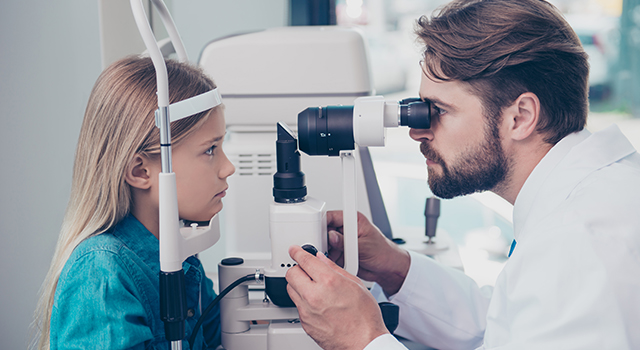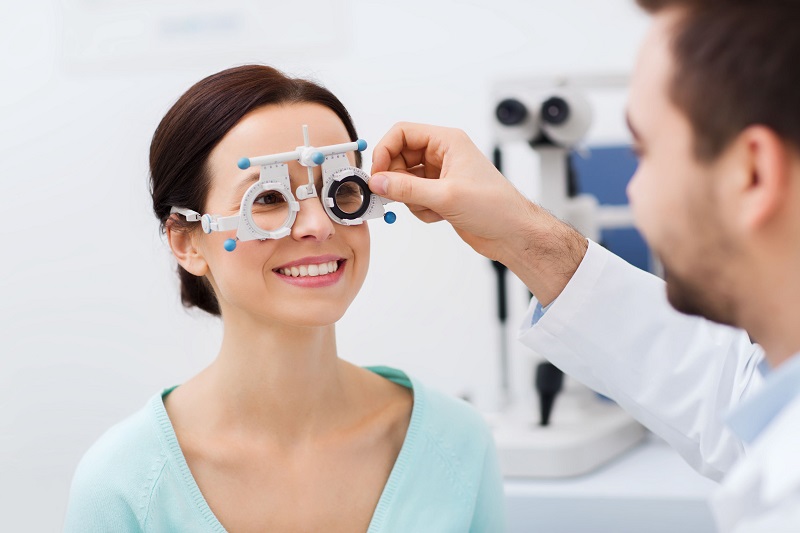Premier Optometrist Montgomery for Clearer Vision
Premier Optometrist Montgomery for Clearer Vision
Blog Article
The Significance of Routine Eye Examinations: Insights From a Skilled Ophthalmologist
Regular eye examinations act as a crucial component of healthcare that prolongs beyond plain vision improvement. A skilled optometrist can give understandings right into exactly how these analyses not just detect usual eye conditions however also disclose underlying wellness issues that might or else go unnoticed. The silent progression of illness such as glaucoma and macular deterioration underscores the need of early discovery. Comprehending the regularity and significance of these evaluations can inevitably influence one's long-term health and wellness trajectory, increasing the question of how commonly individuals must prioritize their eye health in the context of overall health.
Benefits of Regular Eye Exams
Although numerous individuals may neglect the importance of regular eye examinations, these assessments play an important duty in preserving general wellness and well-being. Normal eye examinations serve not only to assess vision but additionally to identify early indicators of systemic health concerns, including diabetes and high blood pressure. By recognizing these conditions at their beginning, individuals can obtain timely treatments, considerably enhancing long-term end results.
In addition, eye tests can help in keeping an eye on existing health and wellness issues, making certain that any kind of modifications in vision or eye health and wellness are quickly resolved (optometrist). The assessments enable personalized recommendations regarding glasses, lifestyle modifications, and safety measures versus potential eye stress or damage
Beyond physical wellness, the advantages of normal eye tests encompass improving lifestyle. Enhanced vision helps with better performance in daily tasks, from reviewing to driving, consequently adding to higher independence and safety. Eventually, prioritizing eye tests cultivates a positive method to health management, encouraging individuals to organize their well-being. Regular examinations are a necessary element of a comprehensive medical care approach, making sure that both vision and overall wellness are maintained throughout life.
Common Eye Issues Detected
Routine eye tests are critical in spotting a selection of typical eye problems that can considerably impact vision and general health. Among one of the most prevalent problems identified throughout these exams are refractive mistakes, including nearsightedness (nearsightedness), hyperopia (farsightedness), and astigmatism. These conditions commonly manifest as blurred vision and can be conveniently corrected with prescription glasses or get in touch with lenses.
Another typical problem is glaucoma, a group of eye illness that harm the optic nerve, often linked to enhanced intraocular pressure. Early discovery is important as it can stop irreversible vision loss.
Age-related macular degeneration (AMD) is one more considerable problem that affects main vision, specifically in people over 50. Ultimately, diabetic person retinopathy, a problem of diabetic issues, can result in serious vision disability if not kept track of frequently. With thorough eye exams, these conditions can be identified early, enabling timely management and therapy to preserve vision and enhance lifestyle.
Significance of Early Detection
Very early detection of eye conditions plays an essential role in preserving vision and avoiding substantial health difficulties. Several eye illness, such as glaucoma, diabetic person retinopathy, and age-related macular deterioration, can proceed quietly without obvious symptoms in their very early phases. By the time signs show up, irreparable damage might have taken place, causing irreversible vision loss.
Routine eye tests assist in early medical diagnosis, enabling prompt intervention and therapy. For example, treating raised intraocular pressure can stop the onset of glaucoma, while taking care of blood sugar degrees can considerably lower the risk of diabetic person retinopathy. Additionally, conditions like cataracts can be properly managed with medical treatment when identified early.

Exactly How Usually Should You Visit?
Identifying the regularity of eye examinations is crucial for maintaining optimal eye health and vision. The general suggestion for grownups is to have a thorough eye test each to 2 years, relying on individual threat factors and age. For individuals aged 18 to 60, an exam every 2 years is typically adequate if no vision problems exist. However, those over 60 must take into consideration yearly tests, as the risk of age-related conditions enhances considerably.
Individuals with particular risk factors, such as a family members background of eye illness, diabetes, or existing vision troubles, might require even more regular assessments. Children need to have their very first eye exam at 6 months of age, followed by added examinations at age three and prior to entering college. Routine exams throughout youth are crucial as vision can transform rapidly throughout developing years.
Eventually, the frequency of brows through must be tailored to every individual's scenarios, including way of life, occupational threats, and any type of pre-existing eye conditions. Consulting with an eye treatment professional can supply personalized suggestions, ensuring that your eye health and wellness is routinely checked and site here maintained.
Tips for Your Eye Examination
Preparing for your view eye examination can enhance the effectiveness of the browse through and guarantee a detailed assessment of your eye wellness. To optimize your time with the eye doctor, it is vital to collect relevant info before your consultation. Start by putting together a listing of any medicines you are presently taking, consisting of over-the-counter medications and supplements, as these can affect eye wellness.
Additionally, document any signs you have actually experienced, such as obscured vision, discomfort, or headaches. This info will certainly aid your ophthalmologist in diagnosing potential issues. If you use glasses or get in touch with lenses, bring them along, also if you do not use them consistently. This will certainly help the doctor evaluate any type of modifications in your vision.
It is additionally beneficial to have a family background of eye problems available, as genetic elements can add to your eye health. Finally, take into consideration arranging your exam for a time when you are much less hurried, enabling you to ask concerns and discuss your problems extensively. By preparing appropriately, you make sure that your eye examination is productive which your ophthalmologist has all the needed info to offer the most effective care possible.

Conclusion
Regular eye tests play a crucial function in preserving both vision and total health. Eventually, focusing on comprehensive eye examinations adds significantly to the preservation of vision and the enhancement of top quality of life, underlining the necessity of routine eye treatment in preventive health care techniques.
Regular eye examinations are critical in identifying a variety of typical eye conditions that can substantially impact vision and overall wellness.Identifying the frequency of eye tests is important for preserving ideal eye health and wellness and vision.Preparing for your eye test can boost the performance of the visit and ensure an extensive examination of your eye health and wellness (optometrist). this article By preparing effectively, you make sure that your eye exam is productive and that your eye doctor has all the required information to provide the best treatment feasible
Inevitably, focusing on detailed eye examinations contributes considerably to the preservation of vision and the renovation of top quality of life, highlighting the need of regular eye care in preventive healthcare approaches.
Report this page